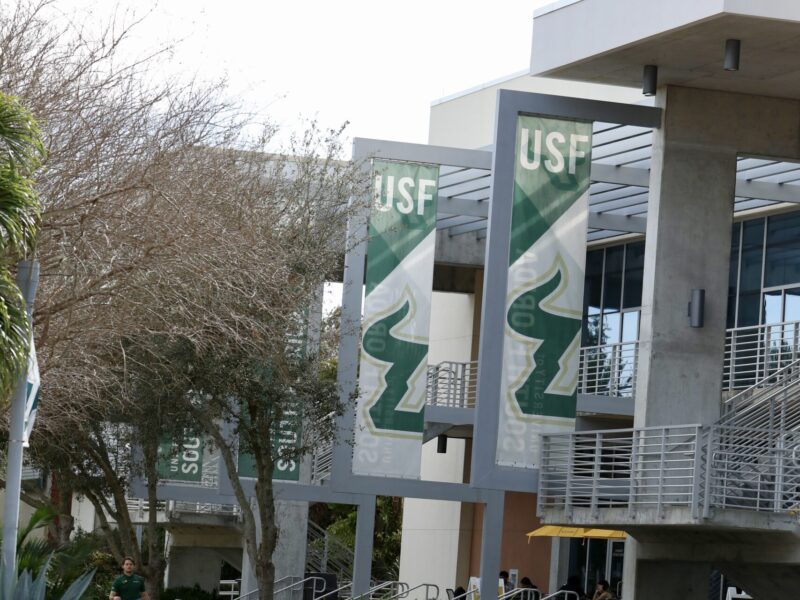 For eight years, Dr. Lisa Starks-Estes has committed to the development of her first book Violence, Trauma, and Virtus in Shakespeare’s Roman Poems and Plays: Transforming Ovid.
For eight years, Dr. Lisa Starks-Estes has committed to the development of her first book Violence, Trauma, and Virtus in Shakespeare’s Roman Poems and Plays: Transforming Ovid.
Starks-Estes is an associate professor of English and the director of the MLA in Liberal Studies Program at USF St. Petersburg.
The book focuses on the Roman poet Publius Ovidius Naso’s tale Philomela within Shakespeare’s work, as well as other relevant myths. Upon completing her dissertation, Starks-Estes explored film theory, concentrating on gender and subjectivity, where she unearthed a new outlook.
“I discovered that early modern [or Renaissance] writers were profoundly influenced by the ancient Roman writer Ovid—his myths and his emphasis on the artist as one who creatively transforms stories of the past,” Starks-Estes said. “I found that in his poems and plays—especially those dealing with Roman subjects—Shakespeare truly employs Ovid in every possible way to explore issues of violence, sexuality and trauma.”
As an editor, co-editor and author of published articles, Starks-Estes had always envisioned herself with a book title of her own. Over the years, fascinating connections arose between the fields she studied.
Starks-Estes acknowledges the significance of examining Shakespeare and other Renaissance literature with a keen awareness of historical contexts, and not simply in terms of major themes and writing approaches.
“I do hope that the book enables readers, teachers and students to see the importance of Ovidian mythology in Shakespeare and Renaissance literature,” Starks-Estes said. “I really felt that, once I understood this rich context, I got to touch the impulse that energized these writers, Christopher Marlowe and Shakespeare especially.”
For two summers, Starks offered her unique perspective and work at the Folger Mini-Institute, a workshop intended to aid high school teachers in teaching Shakespeare. She hopes that these methods will benefit instructors.
“I got a great response from those instructors, particularly on my work dealing with how Shakespeare uses mythology to explore lovesickness in his plays,” Starks-Estes said. “The teachers thought that students would be very engaged in this topic.”
USFSP colleagues will honor Starks-Estes’ achievement 4:30-6 p.m. at Sept. 10 in Harbor Hall. Reservations to attend can be made through Professor Thomas Hallock at thallock@mail.usf.edu.


